*This is part of a short series of blogs based on my visits to the United Arab Emirates during the year 2020*
On Sunday, we visited the Jumeira Mosque, one of two mosques in Dubai open to non-Muslims. This is part of Sheikh Mohammed bin Rashid Al maktoum’s “Open Doors, Open Minds” program, a brilliant cultural initiative to facilitate conversation and understanding around Islam here in the Emirates between Emirati residents and non-Muslims. It was the first time for me entering a Mosque, the first time covering my hair, and the first time holding a falcon on my arm (an amazingly beautiful bird from Abu Dhabi, named Snow). We learned about ablutions—the series of washing rituals that need to happen to prepare oneself for worship before entering the mosque, the five pillars of Islam, and what it felt like to be inside a completely carpeted, intimate and intricately designed religious space with an incredible acoustic.
On Sunday, we visited the Jumeira Mosque, one of two mosques in Dubai open to non-Muslims. This is part of Sheikh Mohammed bin Rashid Al maktoum’s “Open Doors, Open Minds” program, a brilliant cultural initiative to facilitate conversation and understanding around Islam here in the Emirates between Emirati residents and non-Muslims. It was the first time for me entering a Mosque, the first time covering my hair, and the first time holding a falcon on my arm (an amazingly beautiful bird from Abu Dhabi, named Snow). We learned about ablutions—the series of washing rituals that need to happen to prepare oneself for worship before entering the mosque, the five pillars of Islam, and what it felt like to be inside a completely carpeted, intimate and intricately designed religious space with an incredible acoustic.
Our presenter was a British-born Muslim woman, wearing spiky high heels and covered from head to toe in black. She spoke with a working-class British accent, and her passion for Islam was tangible. We learned that Muslims pray five times a day, for five minutes at a time, as a way to ground and and remember what is meaningful, throughout the course of the day. And we watched as a young man sang and prayed, demonstrating the bodily postures that go with praying, as he faced Mecca inside the Mosque.
As we waited in a crowd of forty to enter the Mosque, eating dates and drinking Arabic tea and coffee (Arabica roasted beans, saffron, cardamom, and rosewater=exquisite), we immediately noticed a large number of men with yamukkahs and women with sheilas (scarves), their hair already covered, speaking in Hebrew. Since the Emirates and Israel normalized diplomatic relations about a month ago for the first time since the birth of Israel, Israelis have been allowed to visit Dubai, and, anecdotally from my own touring of the city, seem to be doing so in large numbers. I learned that many Jewish women also veil with a prayer shawl (tallitot) when they enter temple; yet another striking overlap between Judaism and Islam. I felt, all of a sudden, like I was living a historic moment, witnessing a kind of reconciliation that was not only unexpected but amazingly brave, given current tensions between Israel and Palestine, and between Israel and much of the Muslim world.
As we waited in a crowd of forty to enter the Mosque, eating dates and drinking Arabic tea and coffee (Arabica roasted beans, saffron, cardamom, and rosewater=exquisite), we immediately noticed a large number of men with yamukkahs and women with sheilas (scarves), their hair already covered, speaking in Hebrew. Since the Emirates and Israel normalized diplomatic relations about a month ago for the first time since the birth of Israel, Israelis have been allowed to visit Dubai, and, anecdotally from my own touring of the city, seem to be doing so in large numbers. I learned that many Jewish women also veil with a prayer shawl (tallitot) when they enter temple; yet another striking overlap between Judaism and Islam. I felt, all of a sudden, like I was living a historic moment, witnessing a kind of reconciliation that was not only unexpected but amazingly brave, given current tensions between Israel and Palestine, and between Israel and much of the Muslim world.
I am struck, in each small sliver of Islam I am exposed to, by how much actively and consciously centers around the economic safety and well-being of others. Muslim’s are asked to give 2.5% of their annual earnings to someone in need; this is non-negotiable. This explains, in part, why homelessness, something I’ve grown so heartbreakingly accustomed to in the US and in Albuquerque where I live, is not something that exists in the UAE. For the once-in-a-lifetime pilgrimage to Mecca/Hajj that each Muslim is asked to do, they are not allowed to borrow money or go into debt to take the journey, and so are asked to do it only if it is within their means. Similarly, while on Hajj, Muslims are not allowed to perform their social status or cultural hierarchy by what they wear. Each man is allowed to wear two pieces of unstitched white cloth, with no patterns or designs—everyone is equal. Similarly, women, although allowed to wear different colors, can have no stitching, no embroidery, and nothing added to the unpatterned material they are using to cover their bodies. A queen is equal to a laborer, and no one can know the difference.
(and: apropos of nothing: a photo of my new "Omani pants"--pants from Oman, purchased in the city of Sharjah, which which i am in love).
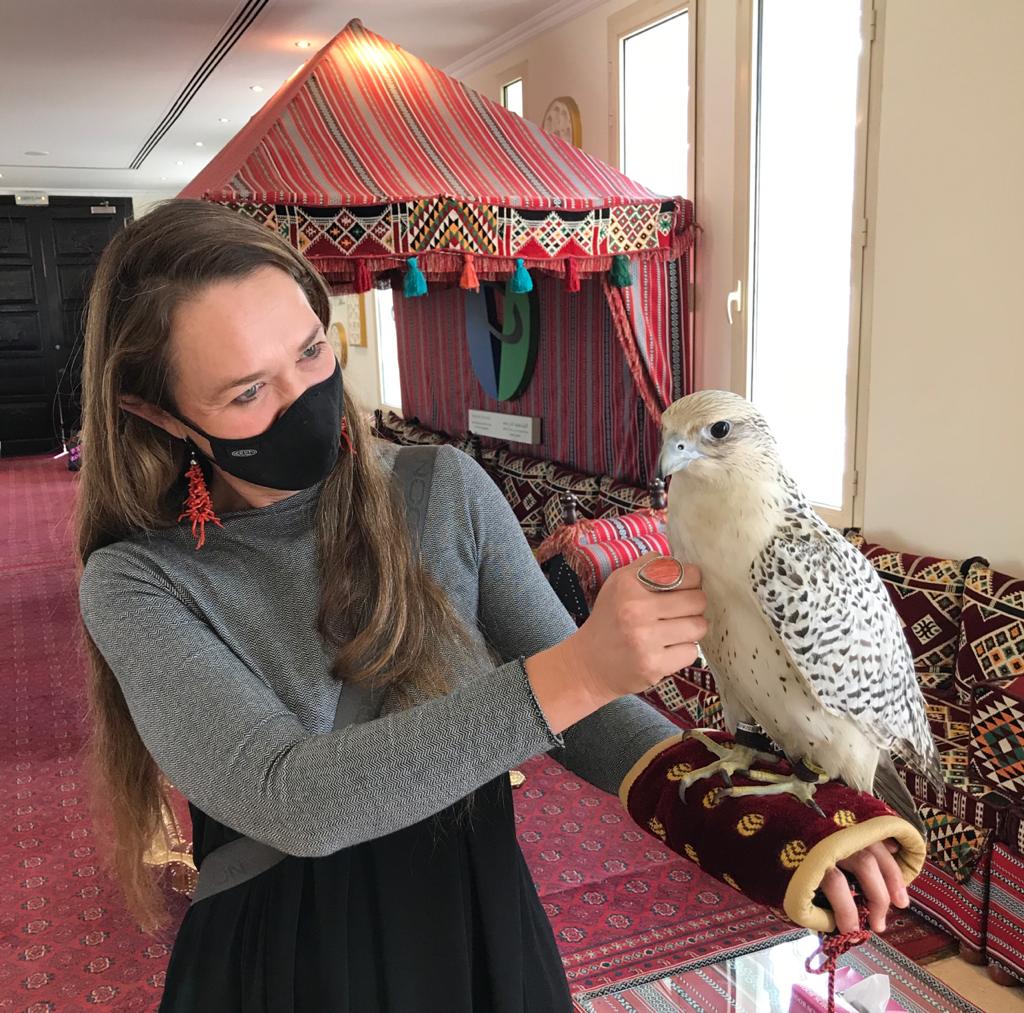
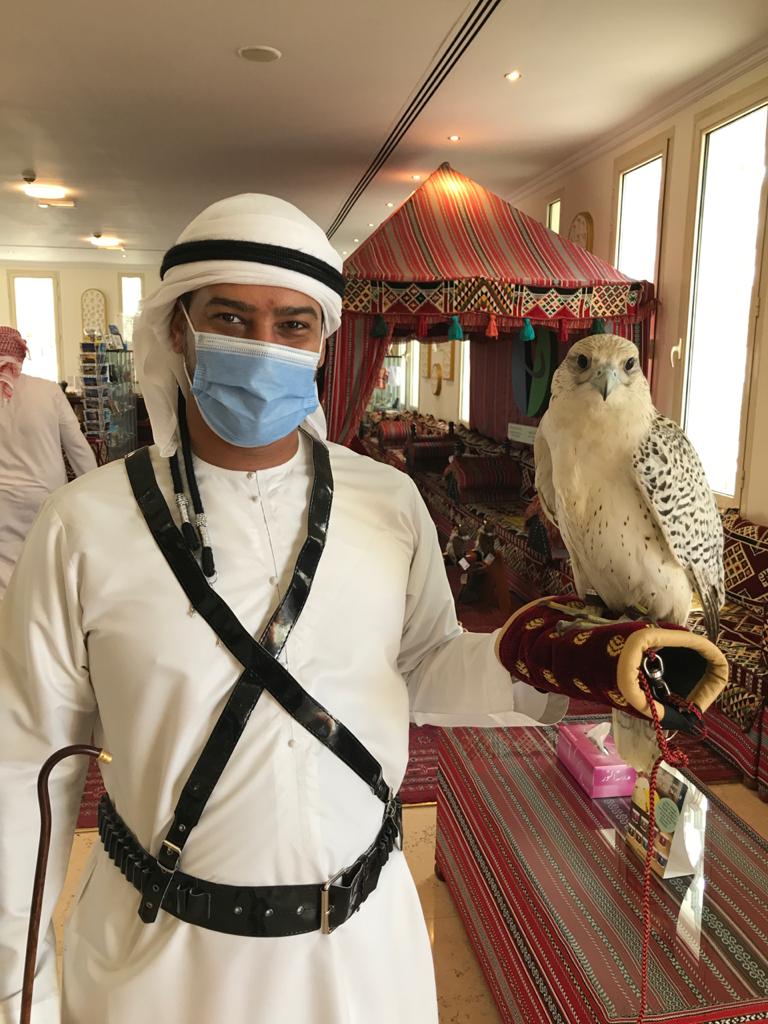
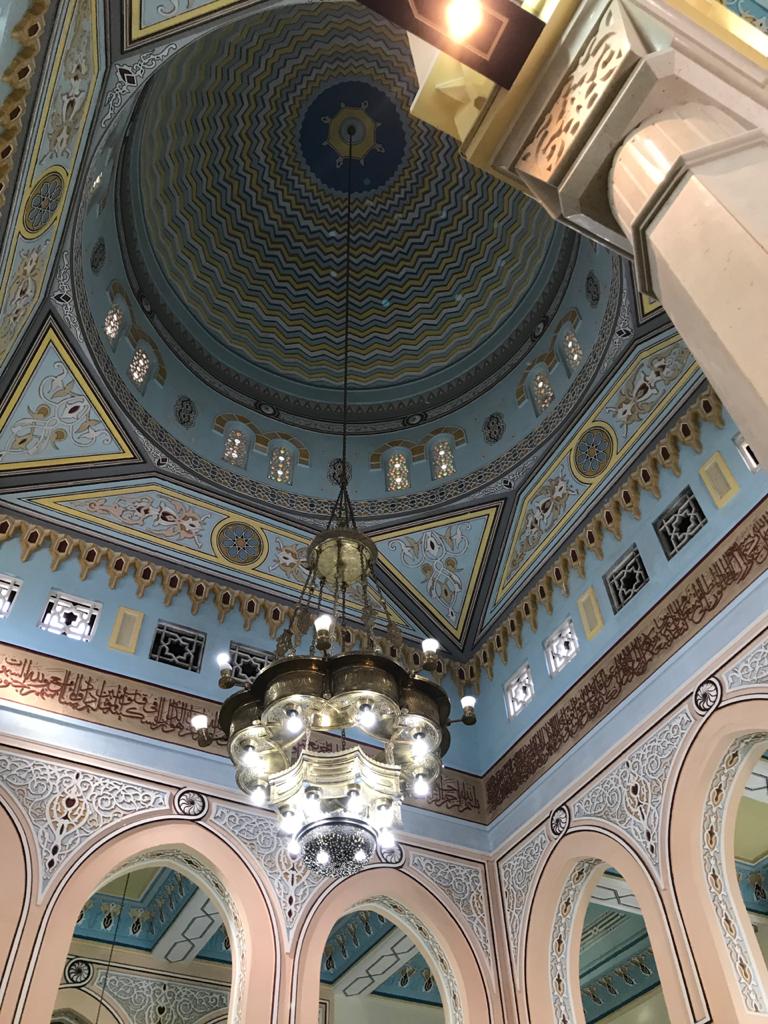
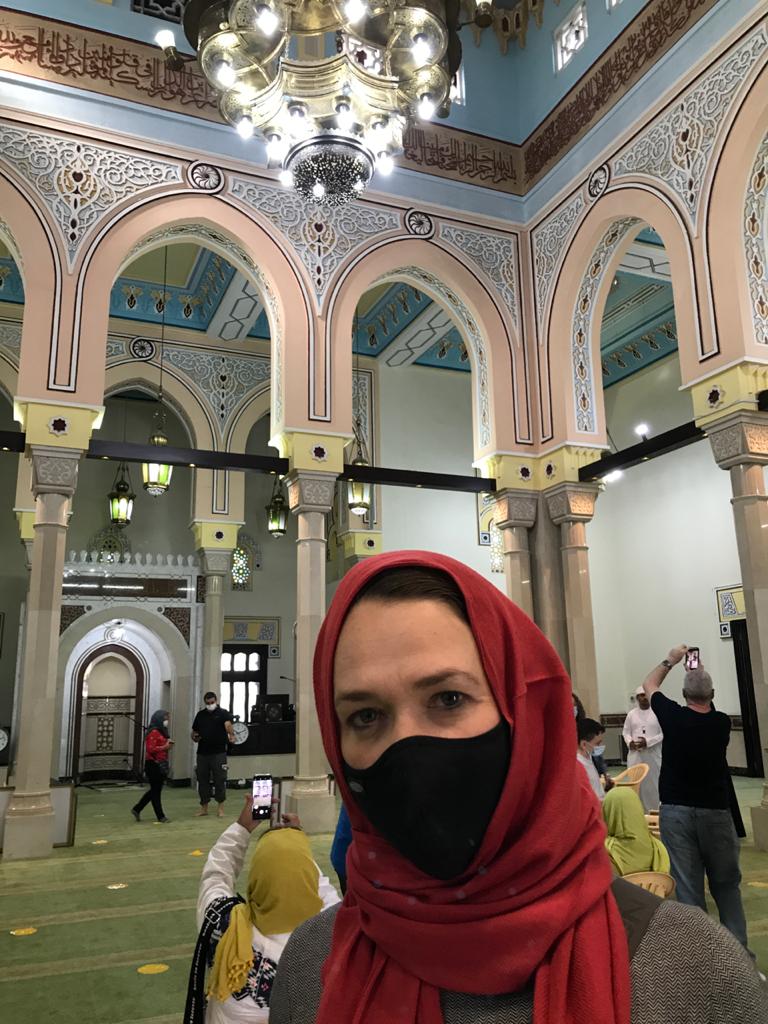
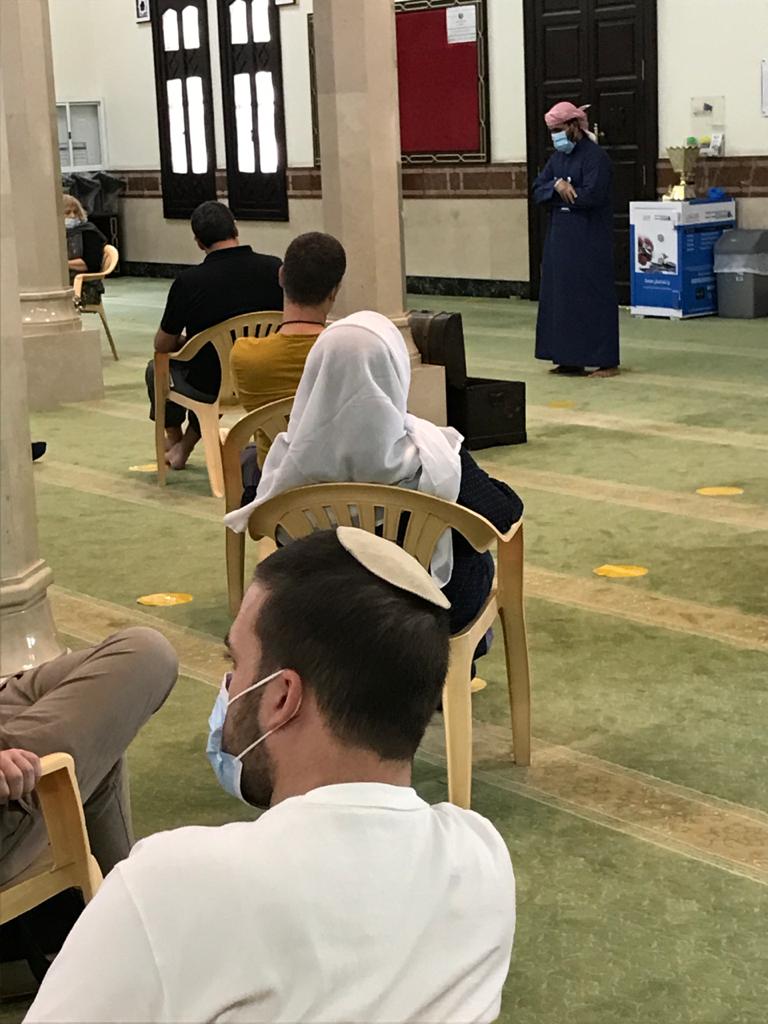
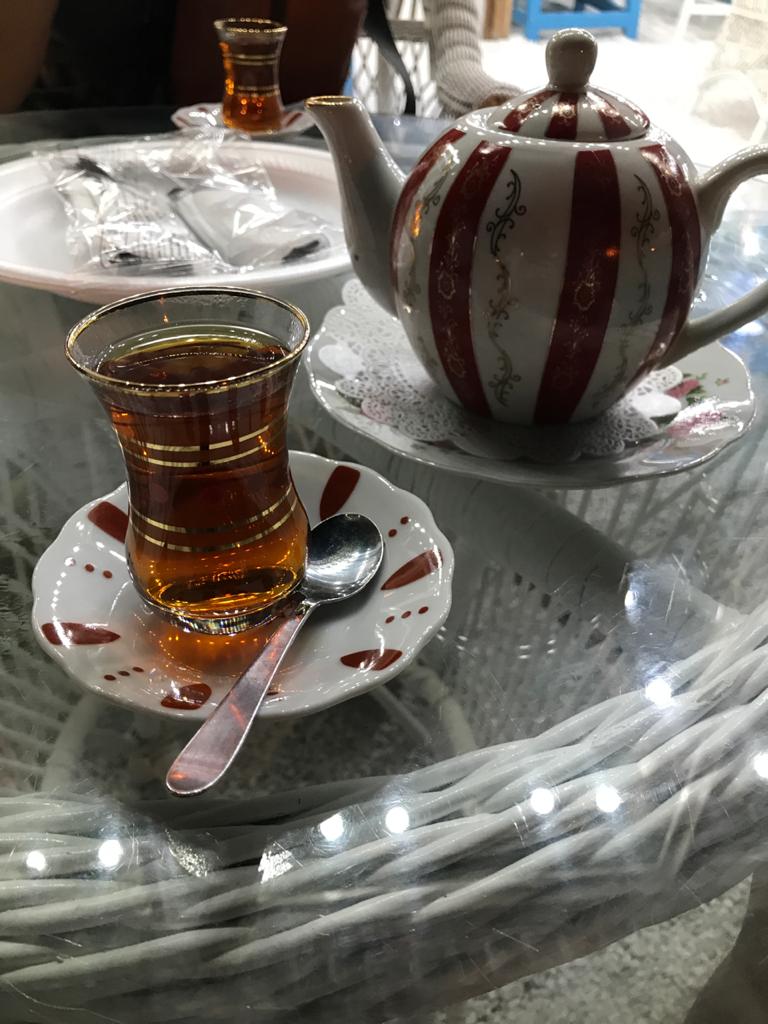
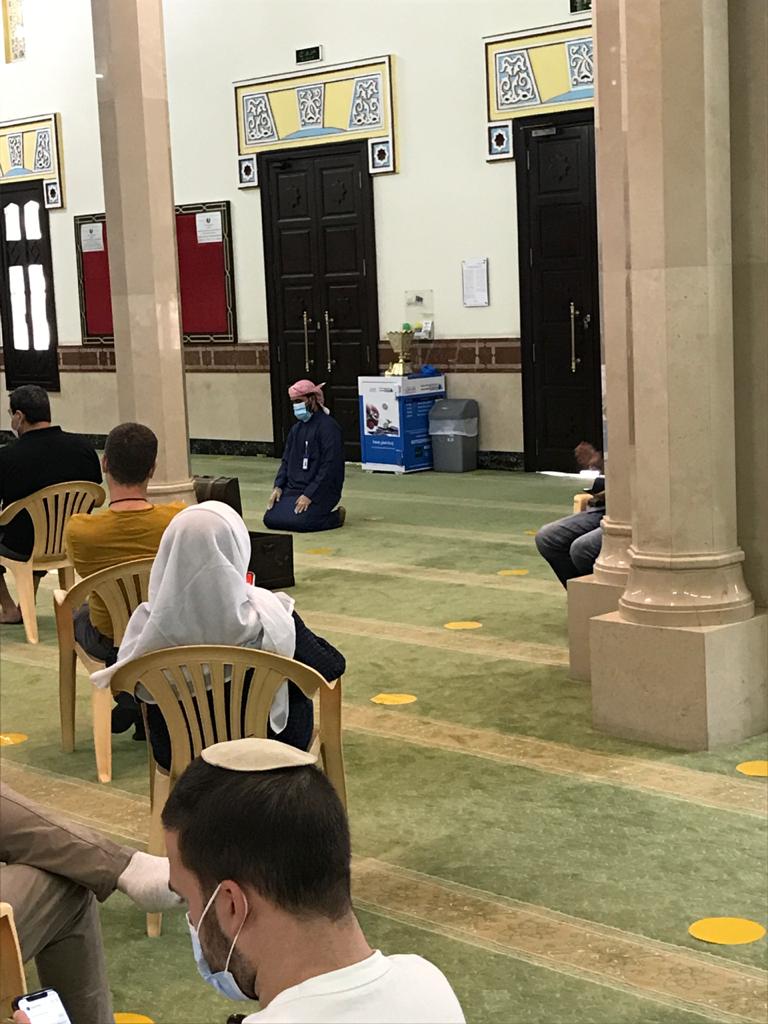
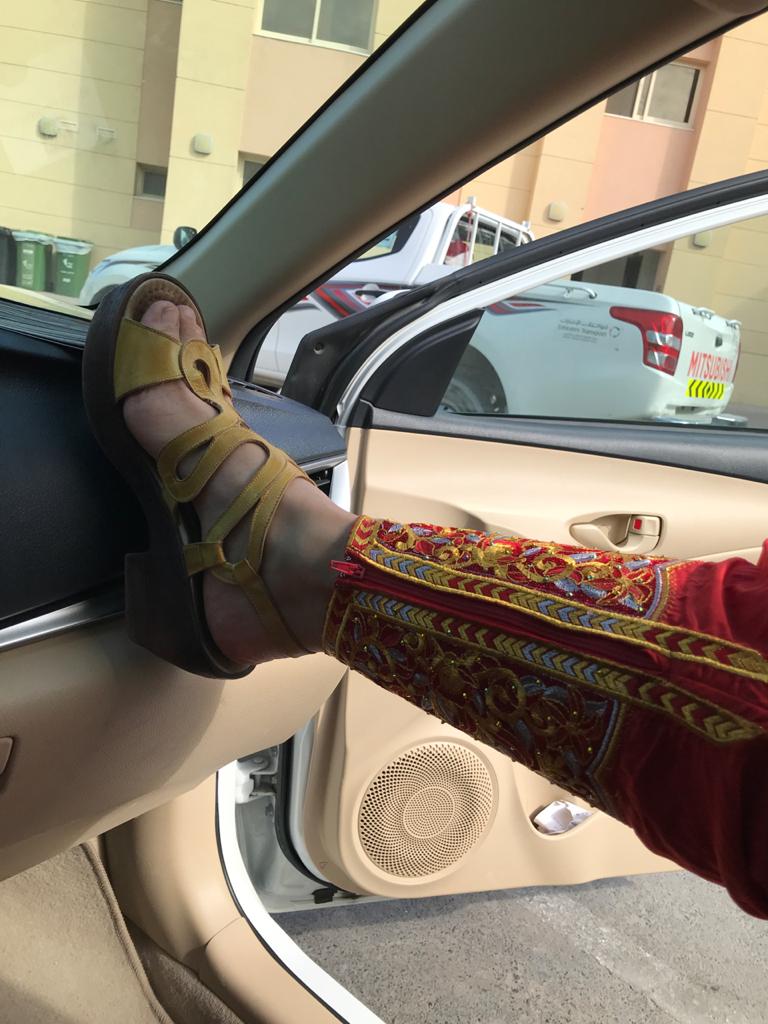
 RSS Feed
RSS Feed
